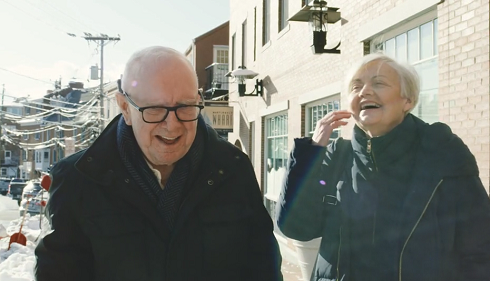Learn More
The Massachusetts General Hospital Transplant Center offers leading-edge consultative services, treatment and surgical interventions to patients with a broad spectrum of diseases.
We are an advocate for organ and tissue donation and strive to find new ways to share available organs among patients on transplant wait lists and, ultimately, a second chance at life.
Organ Donation Saves Lives

The demand for organ and tissue donations has never been greater. Although the latest advances in transplant medicine have created more options for patients on the transplant wait list, approximately 18 people die every day waiting for a lifesaving donation.
Through research, advocacy and education the Massachusetts General Hospital Transplant Center is finding new ways to overcome organ shortages, improve transplantation outcomes and offer transplant patients every opportunity to benefit from transplantation.
Innovative Research
The Transplant Center’s research discoveries continue to revolutionize transplant medicine around the globe. Some of our recent milestones include:
- Developing new protocols that reduce organ wait times and shorten hospital stays
- Engineering new tissues for transplantation and repairing damaged tissues
- Groundbreaking work to overcome organ rejection
Our research focuses on finding new ways to:
- Develop interventions for patients who are not candidates for whole organ transplant
- Overcome organ incompatibility
- Reduce or prevent organ rejection
- Use a patient’s own cells to create tissues
Live Donation
Live donation allows patients to receive a transplant without waiting for an organ from a deceased donor. Mass General has one of the most active and experienced live donor liver transplant programs in the region.
Our kidney transplant program also matches patients with related, unrelated or ABO-incompatible live donors.
Outreach
Mass General is a founding member of the New England Organ Bank (NEOB), a nonprofit organization that is the oldest independent organ procurement organization (OPO) in the country. It is the federally-designated OPO for all or part of the six New England states. Through its nine regional offices, NEOB serves 12 transplant centers with the combined capacity to perform all types of organ transplantation. NEOB allocates organs for transplant regionally and nationally through the United Network for Organ Sharing's (UNOS) national network and registry.
NEOB is also accredited by the American Association of Tissue Banks. The tissues that can be recovered include:
- Blood vessels
- Bone
- Corneas
- Heart valves
- Tendons
- Skin
The NEOB mission includes providing clinical support to the twelve transplant centers in New England related to organ and tissue recovery and allocation, support and information to donor families, education to hospitals, medical examiners and funeral directors and providing public education about organ and tissue donation and transplantation. Mass General works collaboratively with the NEOB to help carry out our mutual missions.
Education and Support for Organ Donors & Families
Organ and tissue donation is a sensitive and personal decision. Through an initiative called Take 5, Mass General nurses offer families support and information as they explore offering life to others through organ donation.
Living Kidney Donor Programs
The Kidney Transplant Program at Mass General provides solutions for patients with incompatible living donors, including positive cross match and ABO-incompatible donors.
Patients who choose to undergo a kidney transplant may have identified a living donor who is willing to donate a kidney. Even in cases where the donor is incompatible with the recipient, our active living donor transplant program can match patients with compatible living donors through the UNOS Paired Kidney Exchange Program or the National Kidney Registry. We also have a successful desensitization program for patients with positive cross match to their living donors and a protocol for ABO-incompatible donor-recipient pairs.
National Kidney Registry
Mass General participates in the National Kidney Registry, an independent organization that facilitates transplants for patients with incompatible living donors, and for antibody, blood type, size and age issues. A computer program finds suitable donors from other mismatched pairs in the Registry, and identifies the necessary exchanges needed to allow all corresponding recipients to be transplanted from a suitable donor. Patients may be part of a multi-pair chain that results in several recipients being transplanted across many states.
To learn more about the National Kidney Registry, visit the Registry's website or call the Mass General Kidney Transplant Program at 877-644-2860.
UNOS Paired Kidney Exchange Program
Mass General can register patients with incompatible living donors in the UNOS Paired Kidney Exchange Program, which works to expedite transplants in patients with blood group antibodies or other incompatibilities to their potential living donors.
ABO-Incompatible Kidney Transplantation
Some patients awaiting kidney transplantation may have an ABO-incompatible living donor. This means that the organ recipient has normally occurring antibodies against blood group antigens carried by the donor. A kidney transplanted under these circumstances would normally be rejected and destroyed by the recipient’s immune system but the Mass General Kidney Transplant Program has established strategies to remove these antibodies from suitable candidates, making it possible to perform a transplant safely. This program involves blood testing, medications and treatments in addition to the standard kidney transplant evaluation and close follow-up after transplantation.
Desensitization Protocols
Some patients awaiting kidney transplant may be unable to receive a kidney from a living donor because of a positive cross match. A positive cross match can result from antibodies produced by the recipient following pregnancies, blood transfusions or prior transplants. The Mass General Kidney Transplant Program has an effective protocol in place to clear these antibodies from appropriate candidates. After additional blood testing, medications and treatment, a final evaluation determines if the transplant can take place safely. Close follow-up after transplantation is required.
Give the Gift of Life
Live donation allows patients to receive a transplant without waiting for an organ from a deceased donor.
The Transplant Waitlist
The demand for donations has never been greater. Source: www.organdonor.gov
Learn More
The Massachusetts General Hospital Transplant Center offers leading-edge consultative services, treatment and surgical interventions to patients with a broad spectrum of diseases.
